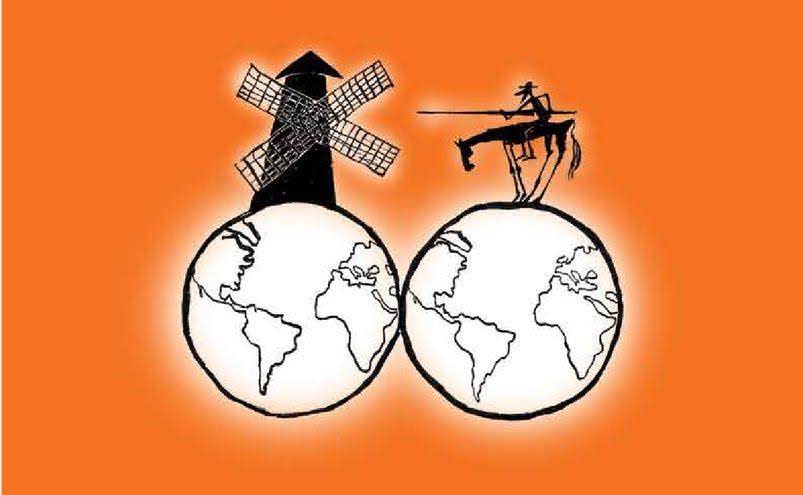UNIVERSITY of the BUEN VIVIR in WE ACCEPT THE CHALLENGE WSFTE
The project of a UNIVERSITY of the BUEN VIVIR (UBV) has been presented by the Campaign for a Global Curriculum of Solidary Social Economy ,at a meeting to organize the second part of World Social Forum of Transformative Economies (WSFTE), on September 3, 2020.
The UBV initiative was born during the celebration of the Campaign’s 4th anniversary, during the WSFTE Barcelona in June 2020 . It will be presented at «We accept the challenge», last stage of the WSFTE, which will take place in virtual format from October 23rd to November 22nd, as part of the Catalonia Fair of Solidarity Economy (CFSE).
Buen Vivir or Good Living constitutes the epistemic paradigm that operates as a platform for the Campaign for a Global Curriculum of Solidary Social Economy, stated in its Charter of Principles, which as a previous process was shaped in the activity called “ Didactics for Buen Vivir / Good Living: Conversations from the Classroom.”
The Project of the UBV constitutes itself out of the experience of movements, networks and social organizations, accumulated through Forums Towards Other Economies, Ethical Finances Forums, Networks for Social Solidarity Economy, Feminist Economies, struggles for Climate Justice and Pedagogies for the construction of Cultures of Peace.
This Project also incorporates the economical-political perspective of Global Citizenship Otherwise, as proposed by The Earth Care Framework as well as the learnings from multicultural meetings and peasant’s spaces , in which original peoples establish the clear principle that education is de-colonial and challenges the matrix that deals as merchandize the spheres of land, bodies, work , money, and thought’s forms , in the terms of Polanyi .
The pedagogical proposal of the UBV is centered in epistemic disobedience. It is an education that criticizes eurocentrism, capitalism, epistemic and patriarchal racism – a decolonial education that springs out from communal non-capitalist learnings, and from non-colonial ways of reproduction of life.
The UBV’s educational formative processes emerge from the projects created in the original people’s territories , with real proposals made to solve material, legal, spiritual, and cultural needs prevailing in the world- a perspective known as Epistemological Territories of the South . Pedagogical practices that inquire, interrogate, and deepen contents about situations which violate rights and threaten the dignity of people and communities, shall have space in UBV.
The UBV’s political educational design is structured with social movements and organizations, campaigns, and de-colonial non-capitalist anti-racist networks, in articulation with groups of diverse origin and university spaces related to our objectives. It will consider experiences of Mayan peoples of Guatemala and other educational spaces that have ventured into paths which allow the reconstitution of philosophies concerning Life, cultivated by original peoples.
The new context to be brought to light requires the recognition of the limits and contradictions of conventional mainstream sciences in the modern western civilizational matrix, which is the foundational basis of conventional universities. Also it demands the awareness of the emergence of other paradigmatic models with new perspectives and meanings which attempt to answer questions that old paradigms did not make, filling gaps that conventional modern western science could not or did not want to cover, and revaluing what science has discarded.
The Campaign for a Global Curriculum of Solidary Social Economy is planning to develop international meetings in several languages- Spanish, Portuguese, English, French, Japanese, Korean, among others- in which all interested people who agree with this initiative’s purposes can make contributions to the University of the Buen Vivir.
All colleagues are invited to actively participate in this cooperative solidarity Project, by contributing with ideas, wishes, and new perspectives concerning old and new subjects. We invite all to focus especially on what delights us , what concerns us, what worries us in order to collectively build knowledges, proposals and solutions that allow us look in a new way at our world – a world which is now burdened by environmental, political, economic, ethical and social crisis, among others, bringing more opportunities to fully develop ourselves as human beings sensitive to reality.
May our children and grandchildren know and acknowledge the responsibility of living in territories which have been cared for by original peoples. This is an opening to epistemological reflection, where thought and dialogical action appear as the interface to achieve the co creation of a scientific pluralism that contributes to humanity’s material, social, spiritual life , as a part of everyday life.

